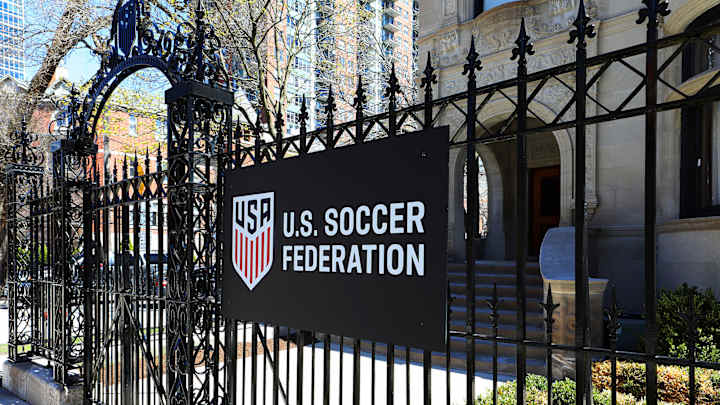U.S. Soccer CEO Will Wilson Addresses Cutbacks, Layoffs at Federation

It wasn't that long ago that U.S. Soccer was flush with approximately $150 million in reserve. But it sure seems like it's been ages now.
New federation CEO Will Wilson wrote an open letter to U.S. Soccer's members on Thursday, addressing the abrupt closing of the Development Academy, confirming reports of layoffs and furloughs within the organization and detailing the overall impact the coronavirus outbreak has had at Soccer House.
Wilson, who was appointed as CEO on March 23 to put an end to the long search to replace Dan Flynn, has stepped right into a crisis, one largely brought on by the pandemic. U.S. Soccer has its own well-documented internal and legal issues, but the financial squeeze the outbreak has had in all sectors around the world has hit the federation, as well.
"Like most businesses across the country, U.S. Soccer has not been immune to the unanticipated and harsh economic impact of the COVID-19 global pandemic," Wilson wrote. "Upon officially joining the organization just over two weeks ago, it became quickly apparent that the status quo was not sustainable for the economic viability of the federation. After extensive discussion, we concluded that we needed to act quickly and decisively in order to not put the federation in financial peril in the coming years."
Part of that was shuttering the Development Academy, which has a series of domino effects across the U.S. youth landscape.
"We know that discontinuing our support of the Development Academy will have a significant impact across the elite youth soccer ecosystem," Wilson wrote. "While the timing is difficult, unprecedented times required us to act now, and we are committed to doing as much as we can to assist during these extremely challenging times. It won’t be easy at first, but I’m confident we will find a way through it together. At U.S. Soccer, we will also be looking at other ways to positively impact youth development moving forward, including an increased emphasis on coaching education, a more comprehensive scouting effort, and working with clubs to maintain and expand the philosophy and standards established through the Development Academies."
Yahoo Sports reported on Thursday that a number of youth teams–but not the men's U-23, U-20 and U-17 sides or the women's U-20 and U-17 sides–will be dormant for the remainder of 2020, with nine combined on the men's and women's side not due to resume activity until sometime in 2021. Wilson addressed that in his remarks as well.
"Since the pandemic hit, we have been scaling back our youth national team programming and will continue to do so for the balance of 2020, with the possible exception of those teams involved in actual competitions," Wilson said. "Along with Concacaf and FIFA, we will continue to monitor the possible staging of those competitions relative to the changing global COVID-19 landscape."
Cuts were also conducted on the personnel side. Longtime U.S. Soccer administrator Brian Remedi, who took on additional high-ranking duties after Flynn's departure and prior to Wilson's hire, was let go. Tonya Wallach, hired in 2018 as chief talent and inclusion officer, was fired, too. They were among around 45 employees and interns, according to ESPN, who were either laid off or furloughed. In doing his part, Wilson says he took a 50 percent pay cut. His salary is thus far unknown, but his predecessor, Flynn, made nearly $900,000, according to USSF's most recent tax returns.
"The layoffs and furloughs were another challenging part of these decisions," Wilson said. "Like all of you, these are people that have been incredibly dedicated and have contributed endless hours to help soccer grow in this country. This process also includes a few organizational changes I have made upon coming into my role. Additionally, I have decided to take a 50 percent pay cut during this period of economic uncertainty."

Avi Creditor is a senior editor and has covered soccer for more than a decade. He’s also a scrappy left back.